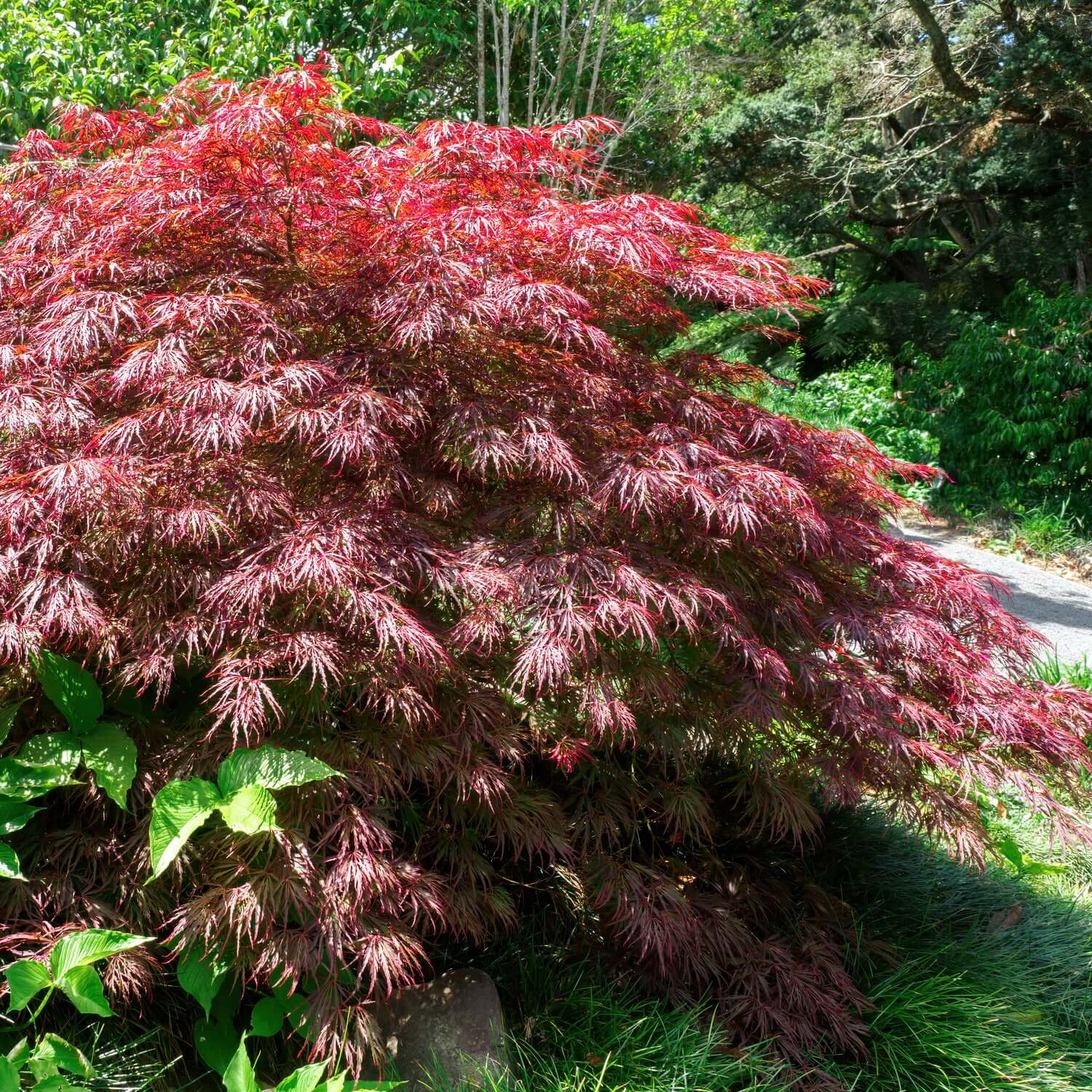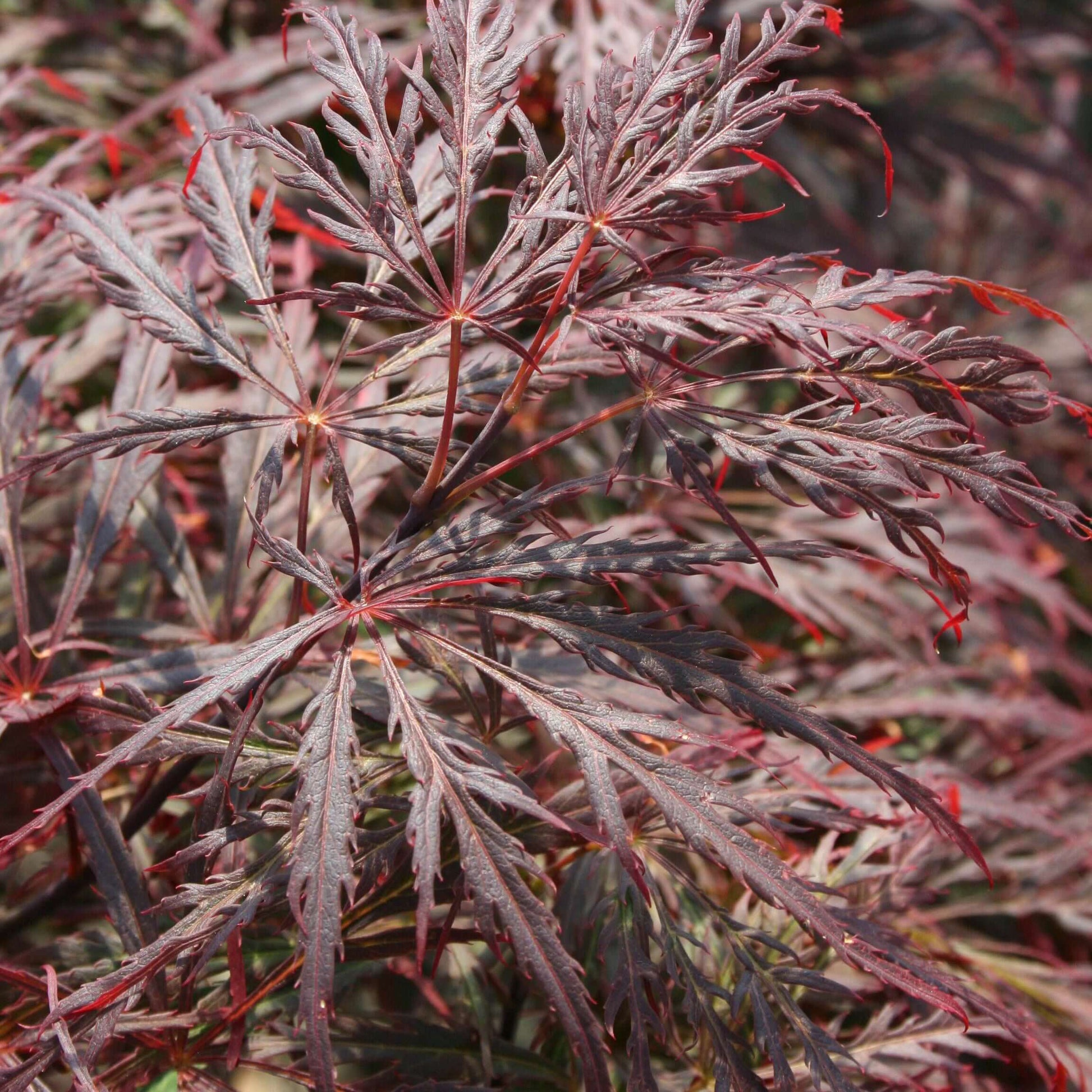
Crimson Queen Japanese Maple
Acer palmatum dissectum 'Crimson Queen'
24-hour money-back guarantee
Free delivery on orders over $349
Delivery
Big Project? Call 888-444-1126 for bulk rates!
Add elegance and grace to your garden with the colorful foliage of Crimson Queen Japanese Maple, a deciduous, cascading, laceleaf maple tree with a compact size. This beauty queen's feathery foliage is royal red in spring then quickly matures to a dark maroon color until autumn, when the leaves transform into a bright crimson red before falling to the ground for winter dormancy.
Also known as a Laceleaf Maple, Acer palmatum dissectum 'Crimson Queen' is a popular cultivar of the Dissectum group of Japanese Maples grown for its exquisite, deeply divided and dissected, weeping purplish-red foliage and low-growing, mounding shape that is striking in any garden, courtyard, or container. Create a focal point with a single specimen or with a group planting. The spreading, sculptural form of 'Crimson Queen' is quite spectacular near water features or boulders, and is extremely effective in a woodland style or Asian garden design. For a dramatic landscape, contrast the red leaf color and delicate lacy texture against plants with different leaf shapes in colors of blue, gold, or green.
Acer palmatum dissectum 'Crimson Queen' has small reddish flowers in spring that are easily overlooked but transform into a red, 2-winged papery seed known as a samara, or more commonly referred to as a helicopter seed for its spinning motion as it falls from the tree.
Crimson Queen Japanese Maple has reigned supreme in the garden since the 1960's for its stable burgundy color, dense growth, texture, and cascading form. This laceleaf maple may look delicate but it is low maintenance. With its majestic purplish-red foliage and easy care, 'Crimson Queen' will be a regal addition to any landscape.
How big does Crimson Queen Japanese Maple grow?
What kind of light and soil does it prefer?
When does it show its best color?
Does it need pruning or special care?
6-15 ft.
10 ft.
Regular
Perfect Your Landscape With Expert Help
Customize your yard with confidence. Schedule your free consultation today and bring your outdoor space to life!



